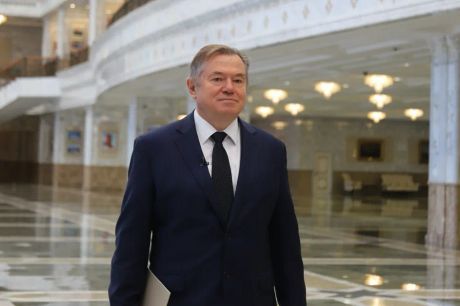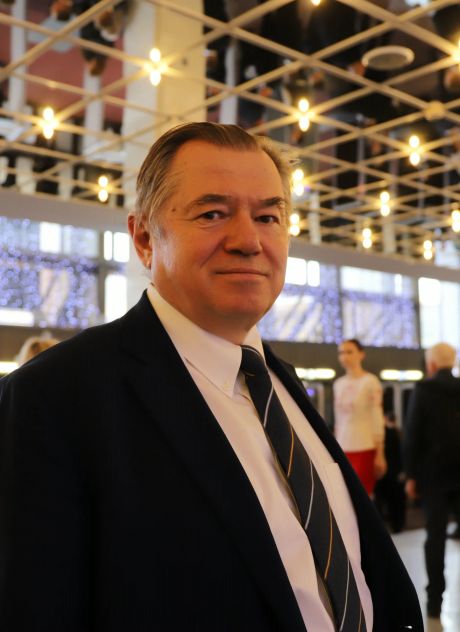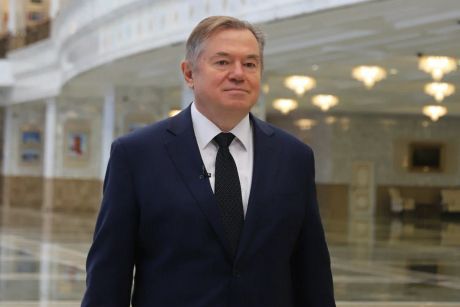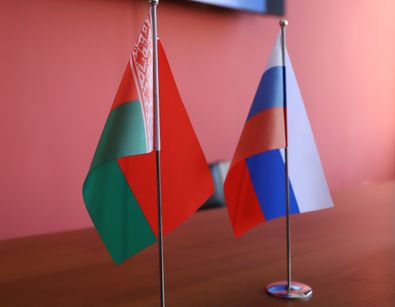Economy expected to help realize true potential of Belarus-Russia relations
16:01, 4 June
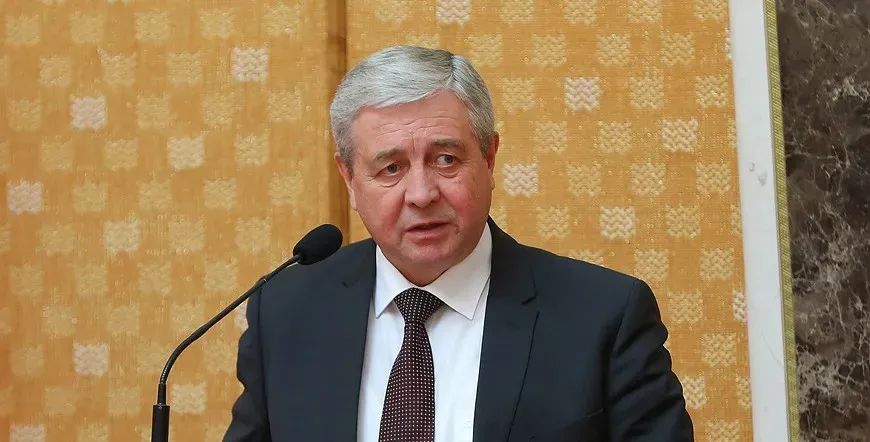
Photo: BelTA
Economic aspects are of great importance for realizing the potential of Belarus-Russia relations. Ambassador Extraordinary and Plenipotentiary of Belarus to Russia Vladimir Semashko made the relevant statement during an expert meeting held to discuss the future of Russia and Belarus after the pandemic, BelTA has learned.
- Share on Facebook
- Share on VK
- Share on Twitter
Vladimir Semashko said: “A well-known postulate says that politics is a concentrated manifestation of economy. This is why I would like to dwell on economic aspects, which I believe represent the key potential for advancing our relations, something that could allow reaching brand new heights.”
In his words, barriers and restrictions are still encountered in practice despite a number of commitments to ensure equal terms and guarantees for the operation of Belarusian and Russian commercial entities. It is in overcoming these barriers and restrictions that the key reserve for advancing the mutual relations lies. “For instance, all of us know about the support the Russian government provides to the country's manufacturing sector within the framework of import substitution programs. But this support does not cover Belarusian-Russian joint ventures, which are located in Russia and make agricultural machines, utility vehicles, and other machines and vehicles. We point out that those are Russian commercial entities that employ Russian citizens and pay taxes to the Russian state budget. Belarus has invested considerable resources in setting them up and developing them. Moreover, Russian materials and components account for over 50% of the assembly kits imported from Belarus,” the ambassador noted.
Vladimir Semashko stressed that Belarus imports nearly 100% of oil, natural gas, and other raw materials. “This is why energy is a very sensitive matter for Belarus. This year we are once again in negotiations on prices for the natural gas Belarus buys. Prices in conditions of the common market should be comparable. Everyone knows the situation with oil and oil products. The adjustment of taxation of the Russian oil industry has radically changed the conditions the Belarusian petrochemical industry operates in. The situation continues getting worse. We've just settled the matter of oil deliveries this year only to run into the problem of trade in oil products. Russia banned the import of oil products, including of Belarusian make, starting June,” he explained. “Let's sum up everything now. Unequal subsidizing conditions, genuine discrimination of Belarusian manufacturers on the Russian market at times, essential differences in natural gas prices, the unilateral change of oil delivery terms, the ban on the import of oil products. Let's add to the mix periodic restrictions on access to government procurement contracts, the so-called milk wars, sugar wars, meat wars, and the rest. One starts to wonder what kind of integration it is.”
The ambassador stated that Belarus believed and continues believing that enabling equal conditions for doing business is the main goal of integration. “Let me emphasize: we don't ask for preferential treatment, we are in favor of equal conditions. We are offended by fake statements that we are freeloaders, that we are fed for free, get all kinds of help and so on. These are absolutely false perceptions. And later on, when we talk about equal conditions, may honest competition come into play,” he said.
Vladimir Semashko added that out of the 30 roadmaps on further Belarus-Russia integration 28 ones are fully reconciled and one is reconciled by half. One roadmap, which deals with the common market of natural gas and the compensation for the Russian oil industry taxation change, is still open to debate. “The adoption and implementation of these roadmaps could be an essential step forward along all the integration avenues. However, one of the essential conditions specified by the Belarusian side – the resolution of problems and issues in bilateral cooperation – was not met by the time work on the roadmaps was finished. The Belarus president has repeatedly drawn attention to the fact that all the new integration agreements can be signed only as a package. However, the lack of genuine progress in energy negotiations, in the removal of barriers, and the enabling of equal conditions for commercial entities did not make the signing of the prepared package of documents possible,” he remarked.
The ambassador assured that Minsk is ready to negotiate at any time. Vladimir Semashko added that the negotiations can be resumed in September-October.



